- More
'There are so many things that ex-racehorses can do'
In the fourth instalment of our series, we look at prospects for ex-racehorses
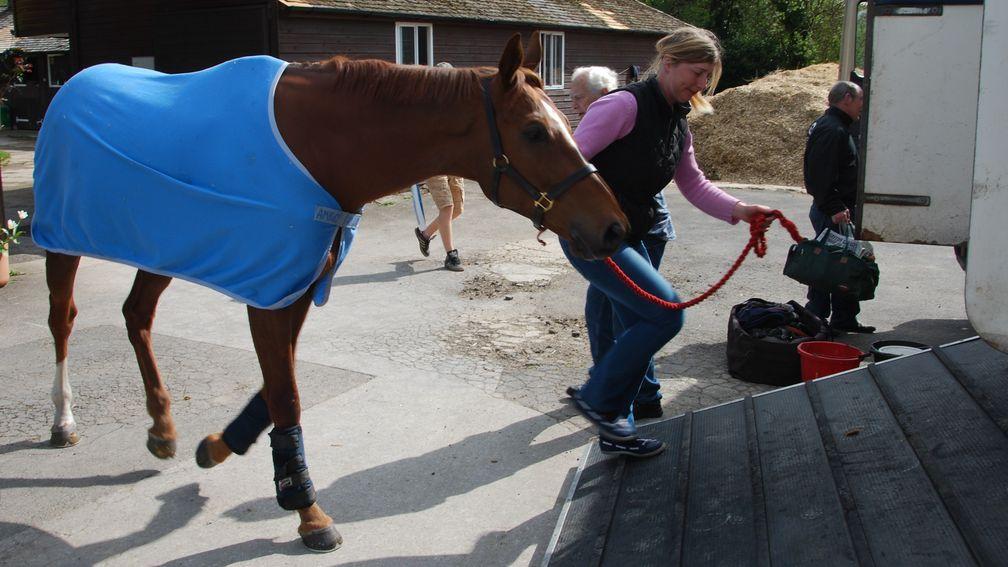
Horses gallop across Di Arbuthnot's desk, on their way to pastures new. As one stable door closes, another opens somewhere else, and Arbuthnot steers her horses in the right direction, towards a new destination, a new life.
Arbuthnot is the chief executive of Retraining of Racehorses (RoR), the welfare and after-care charity organisation set up by the BHB in 2000. Its briefs include raising funds for the retraining and rehoming of racehorses who have, for whatever reason, left the racing system, providing a safety net for the vulnerable ones, promoting the notion that ex-racehorses are eminently suited to other equestrian disciplines, and staging competitions and educational events for those people who have taken on an ex-racehorse.
"It's about raising awareness, being proactive rather than reactive, encouraging people to take responsibility for their horses, and ensuring there's a strong after-care programme for those who need it," she says. "The underlying impression of a wide cross-section of society is that if a racehorse doesn't win it ends up in a can. It's up to us to change that impression.
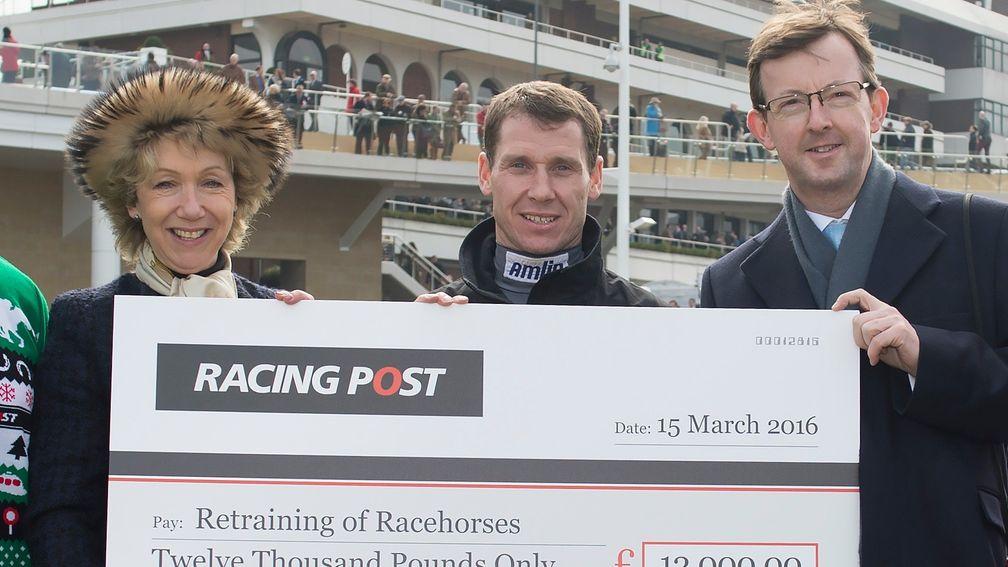
"Stage one is to educate owners and trainers that there's a strong and growing market for ex-racers, and that they have options when a horse reaches the end of its career. The message is getting through, across the industry, although there are still owners out there who absolutely don't care what happens to their horse at the end of its career, but that's the reality of life.
"Plenty of trainers are thinking about the next step before a horse has even been retired, and can market them accordingly. Smaller trainers may not have the same sort of network, and we'll try to do more to help them this year, with things like the 'Source A Horse' section on our website [ror.org.uk]."
Alan King, who trains at Barbury Castle in Wiltshire, has been on-message for some time and the horses who leave his yard are reaping the benefits. At the recent Royal Windsor Horse Show his former charge L'Amiral David, an eight-year-old who was beaten in all 11 starts, won the RoR showing class at his first attempt.
"There are so many things that ex-racehorses can do – point-to-pointing, eventing, showjumping, showing, team-chasing, all the way down to being someone's hack," he says. "It's surprising how so many do so well in their new roles.
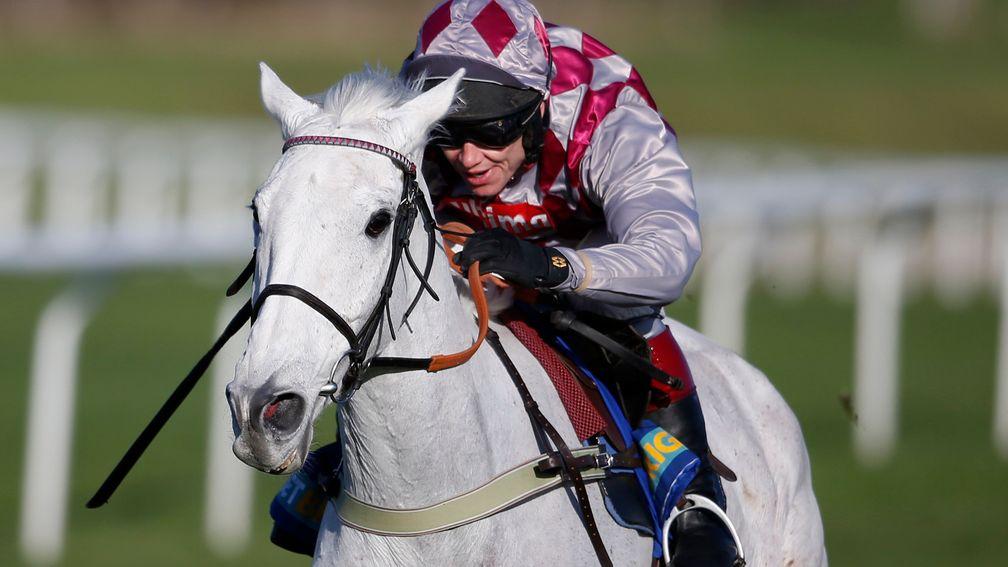
"Much of the rehoming is done by word of mouth – we have a list of people, of contacts, and the grapevine can be very successful. I take charge of that myself, because it's our responsibility, and some don't go very far at all – my secretary Charlotte Burke took on Crystal D'Ainay when he retired and now she has Smad Place.
"We ask those who take on our horses to sign a contract with Weatherbys so that they never race again, and we'll always have a horse back if it isn't working out with the new owner. But they usually end up in good homes and stay active – horses need to be doing something, they enjoy it, better that than just ending up in a field."
Arbuthnot considers that approximately 2,800 horses enter the RoR system each year, and Philippa Gilmore, RoR marketing and sponsorship executive, fleshes out the figures.
"Of the former racehorses registered with RoR, 66 per cent are registered to compete in other equine disciplines," she says. "The following numbers don't match up entirely because many horses are registered for more than one discipline, but 72 per cent [of that 66 per cent] compete in dressage, 63 per cent compete in showing and 50 per cent compete in eventing.
"The remaining 33 per cent are registered for free, which means they're hacks or companion horses."
Arbuthnot would like Britain to take a lead from the Australians, who require all owners to inform the authorities when a horse leaves their possession, and RoR is currently working on that initiative. She also attended the Asian Racing Conference in Seoul this month, when the issue of responsibility for aftercare of horses in jurisdictions all around the world was high on the agenda.
"It's just another aspect of what we all need to do, and it all revolves around everyone taking responsibility for ex-racehorses and being aware of the opportunities available to them when they are no longer racing.
"There is in Britain a nationwide support network via RoR, with events and competitions on a regional basis, and many people who run retraining and rehoming centres have a commercial arm and a charitable arm. The situation now is vastly different from how things used to be, and there are now a lot of people out there who know the possibilities and opportunities open to ex-racehorses.
"I'm incredibly proud of what RoR has been able to do, but there's still much more that can be done to ensure that all our ex-racehorses have a safe and fulfilling life after racing."
Retraining of Racehorses website
The matchmaker
She calls herself Cilla Black for her skill at matchmaking, but in Vicky Smart's case her 'matches' go into their new relationships with their eyes wide open, and they don't come back a week later to moan about their new partners.
Smart, wife of Thirsk trainer Bryan Smart, has been involved with the Retraining of Racehorses project since its earliest days, falling that way through the exploits of Differential, whose career-ending injury coincided with Smart's own enforced retirement. They "bumbled along together", Smart buoyed by her training as a riding instructor and her background with horses, and made it all the way to fourth place at Hickstead. Now what Smart did for Differential she does on a wider scale.
"'Can Vicky find me a horse?' is what they say," says Smart. "I get messages all the time. Very often I'd have it in my mind what would suit this horse or that horse even while they're still in training, from the way they move, from the way they go.
"I'm able to give people a good steer about a horse's temperament, about its history, and about the type of job it might be suited to. Does it have a natural aptitude for a new discipline, or could we change its way of going completely?"
Smart likes to provide her clients with a blank canvas of a horse, doesn't embark on any course of retraining, simply lets the horses down, reduces their work, puts them on a low-energy feed mix. Then they find their way to Smart's Facebook page, where they advertise themselves to prospective new owners.
"If someone wants one of our horses they come to see how it moves, they can watch it being ridden, they can have it vetted, they can talk to the groom and the trainer to get an idea of its character. People can tend to be a bit hung up on what a horse might have wrong with it, but because we know its history we can allay their fears."
People always want freebies too. Smart encourages prospective new owners to see the bigger picture with a financial input, reckoning that if there's an investment at the beginning there's more likely to be an investment of care throughout a horse's life.
"Ballpark, say something like £800 to £1,200. It's a little bit back in the pot for the previous owner – and it's important that we make our owners aware of the potential avenues for their horses when they stop racing – and shows that the new owner buys in to their new horse on another level.
"If for any reason there are problems down the line, we encourage people to contact us first and we'll always take the horse back and try another tack. It doesn't happen very often; I can only think of three horses who have come back."
If a particular favourite is off to pastures new Smart may let him or her go on permanent loan – yard legend Smalljohn is in that category – so if problems arise then under the terms of the contract the horse will come back to his old home.
Watch Smalljohn winning at Wolverhampton
There have been many success stories – including Horse of the Year Show winner Roger's Revenge and eventer Fearless Poet – but Smart points out that the RoR scheme, for which she is a consultant, a point of contact, is as much about grassroots as it is about the elite level, and there is a support network both central and local should any difficulties occur.
"Owners and trainers have the responsibility to make sure their horses are cared for after they come out of training, and that message is steadily spreading throughout the sport.
"Ex-racehorses have seen and done a lot, they've been travelling up and down the country, they've been to lots of different racecourses, had several different riders and maybe trainers too – they're mature beyond their years.
"They may take a year or two to settle fully into their new careers, but it gives me a huge sense of satisfaction to see a horse start again, move on and be successful and happy in its new life."
The dressage star
Tamsin Karn and Heezazari (Henry)
She has been on many journeys with many horses during her career in racing, but the road Tamsin Karn is taking with Heezazari is leading her to happiness.
Karn is travelling head groom with trainer Owen Burrows – she worked for Marcus Tregoning, John Hills and Barry Hills at the Lambourn yard before Burrows took over the licence – and her connections within the sport were the key to finding the horse she calls Henry.
"I put the word out that I was looking to take on an ex-racehorse, and someone told me that Ben de Haan might have a suitable horse," says Karn. "I went to see Henry in his box and I fell for him straight away, it was love at first sight. That was eight years ago.
"He'd had tendon injuries, twice on the same foreleg, so I was reluctant to do anything with him that involved jumping. But he moved well, and I've always loved dressage, so I thought we could try that together.
"He had plenty of box rest and then I had to fit all his retraining around my job – I took it slowly, it took quite a long time, but slowly I gained his trust and he's had no problems with his tendons. At the beginning he did have a few confidence issues but they've totally gone now – he's quite laid-back, quite soft really, we have a great bond."
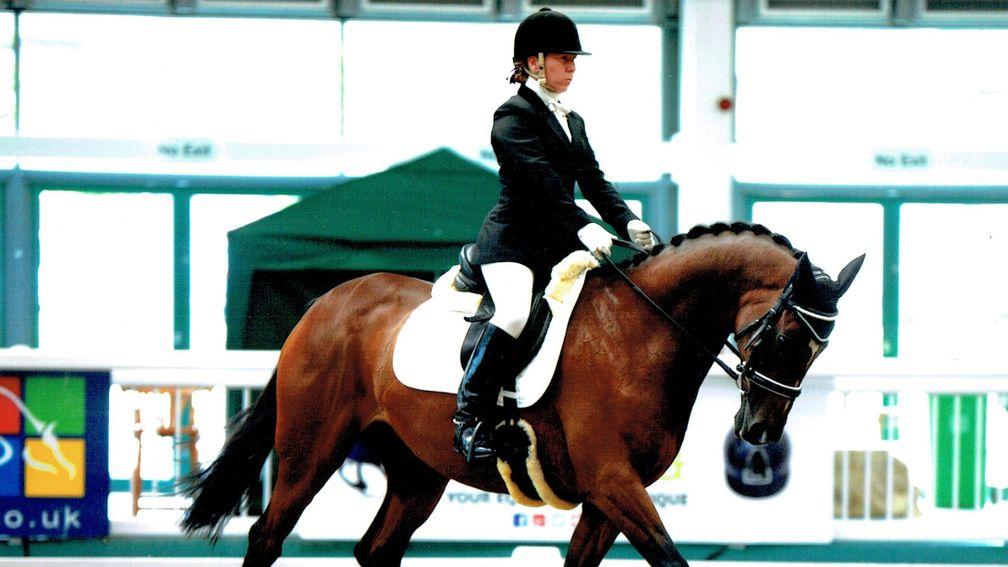
Henry's career in his new discipline is on an upward curve. After competing for some time in unaffiliated dressage at elementary level, Karn was advised that she could step him up to medium level and try her luck in affiliated events; a couple of weeks ago Henry was sixth in his class at the Royal Windsor Horse Show.
Karn has also been showing the 17-year-old, a winner over hurdles at Bangor in a short and stop-start career, but the evidence of his previous life has made that option difficult, as she explains.
"When he was injured he was fired, but that left scars on his legs and he was continually being marked down at shows because of it. Here I am trying to give him a useful second life, and the showing community is penalising us because of something that happened to him before he came to me – it's not fair.
"He can compete in RoR classes because there are plenty of those horses who've had similar problems and there's no stigma about his appearance."
Henry is now a stalwart of the RoR musical dressage display team, and Karn is mulling over a spot of side-saddle competition too. "He gets plenty of compliments from judges," she says. "He's a superstar, I'm so proud of him."
The family pet
Anna Cole, Ida Cole and Annie's Act (Annie)
Most students take their car to college, or their sound system, or their favourite teddy bear, but not Ida Cole. She plans to take her horse.
Such is the impact made on the Cole family by the nine-year-old mare Annie's Act. It is a long way from the Coles' base near Tavistock to Newton Rigg College just outside Penrith, but Annie's Act should cope with the move. Worse things have happened to her, after all.
"Annie came to us last summer, she'd been with Sarah Milsom after she finished racing but she's not the biggest horse and Sarah's quite tall, so she sold her on to us," says Anna Cole.
"Ida had done plenty of Pony Club when she was younger – she's 16 now – but she was injured at one point and that made her a bit wary. She wasn't fazed by the thought of riding a thoroughbred, but she needed a sensible horse. Annie is quite bouncy, quite exuberant, but Ida's a calm rider and they bonded, built trust between themselves, and Annie learned to put up with all the other animals on Dartmoor."
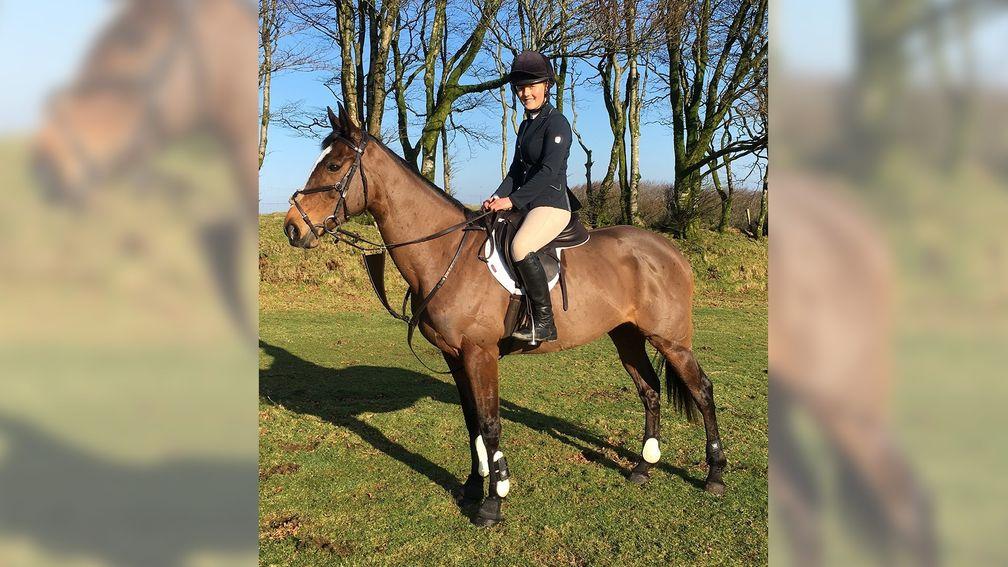
So far, so good. Until the afternoon Ida went to catch Annie and found that she'd been staked through her chest on a metal gate and was staggering around the field in the process of bleeding to death.
"I thought she'd die. I'm a farmer's wife and I've seen a lot, but this was so awful," says Anna. "We managed to walk her into the yard and luckily our vet Sophie came right out. She was tremendous, did an amazing job, saved Annie's life."
Annie was a good patient, healed quickly, was able to be ridden again two or three months later, appears not to have been affected by the whole traumatic experience. She and Ida have picked up where they left off, have been hunting, done a little showjumping, and the plan now is to make a nice eventer out of a mare who ran just four times for Peter and Joanne Foster in bumpers and point-to-points with nothing to show for it.
"She's a really good jumper, she's a fantastic little horse," adds Anna. "And she's so sensible and safe – my other daughter Liv has Down's syndrome but she leads Annie around without any worry or problem.
"She really is a super horse, a proper family pet. She's obviously been very well treated by the people she's been with in the past and she can cope with everything.
"The only problem is that now Ida won't let anyone else ride her, so she wants to take her to agricultural college in the autumn. I'm sure Annie will enjoy it – as long as the college allows her to go!"
Members can read the latest exclusive interviews, news analysis and comment available from 6pm daily on racingpost.com
Published on inBritain
Last updated
- Robert Havlin hoping to return from injury early next year after Southwell fall takes gloss off lucrative 2024
- 'Any turf track bringing jump racing back has to be a positive' - spirits high as Windsor ends near two-decade hiatus
- From top hurdler Bula to a Grand National winner: the star horses who have been successful at Windsor over jumps
- Chianti Classico's racing career in doubt after suffering tendon injury at Cheltenham
- 'He babysits the yearlings and is made for it' - Cheltenham king Coole Cody still bossing the field in retirement
- Robert Havlin hoping to return from injury early next year after Southwell fall takes gloss off lucrative 2024
- 'Any turf track bringing jump racing back has to be a positive' - spirits high as Windsor ends near two-decade hiatus
- From top hurdler Bula to a Grand National winner: the star horses who have been successful at Windsor over jumps
- Chianti Classico's racing career in doubt after suffering tendon injury at Cheltenham
- 'He babysits the yearlings and is made for it' - Cheltenham king Coole Cody still bossing the field in retirement